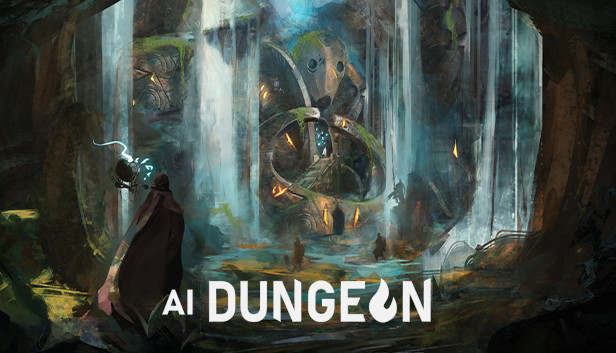AI dungeon:An Innovative Platform for Interactive Storytelling
The Universe of AI Dungeon: An Exploration:
Recently, the term "artificial intelligence" (AI) has gained popularity, and with good cause. AI has the potential to disrupt how we live and work, with the ability to affect practically every industry, from healthcare to transportation. To use a new technology effectively, it is crucial to be aware of both its benefits and drawbacks, as with any new technology.
One the one hand, AI has the ability to improve personalization, productivity, and efficiency. Businesses may automate procedures and save time and money by using AI technologies to do repetitive operations quickly and accurately. AI is also capable of analysing enormous volumes of data to generate customised recommendations or forecasts depending on user behaviour or preferences. In a variety of industries, AI-powered automation can also enhance productivity by streamlining procedures, lowering errors, and reducing waste.
The employment of AI, however, is also accompanied by a number of serious worries. Potential job displacement is a serious worry, especially in fields with repetitive work or lower-skilled professions. Without careful planning and study, automation fueled by AI could worsen already-existing disparities and result in job losses. The possibility of bias and discrimination is a further worry. AI has the potential to reinforce and magnify preexisting biases in data and algorithms, resulting in unfair outcomes and sustaining inequity.
Regarding the use of AI, privacy and security are also major issues. Privacy issues may arise when AI systems gather and analyse personal data, especially when used for surveillance and facial recognition. The rising usage of AI systems also raises the danger of cybersecurity threats and hacking, which might cause a great deal of damage.
The employment of AI raises ethical questions, notably in fields like criminal justice and autonomous weapons. There is a need for continual assessment of the ethical, legal, and social ramifications since the use of AI in decision-making raises ethical concerns regarding justice and accountability.
We will examine AI's benefits and drawbacks in this blog post, as well as the consequences of its application in numerous fields. We'll look at the advantages of greater effectiveness, productivity, and tailored experiences as well as the disadvantages of job loss, bias, and security issues. In the end, responsible AI development and application will necessitate continual assessment of the ethical, legal, and societal ramifications, as well as a balance of the advantages and disadvantages of this tremendous technology.
Advantages:
- Efficiency: AI systems can quickly and accurately carry out repeated operations, enabling organisations to automate procedures and save time and money.
- Personalization: AI is able to evaluate vast volumes of data to provide recommendations or forecasts that are tailored to each user's preferences or past behaviour.
- Better Decision-Making: AI can swiftly analyse enormous volumes of data, enabling more informed and precise decision-making in industries like healthcare, finance, and business.
- Productivity Gains: AI-powered automation can enhance productivity across a variety of industries by streamlining workflows, reducing errors, and automating repetitive tasks.
- Personalized Experience for Customers: AI can be used to study consumer behaviour and preferences to enhance the customer experience.
- Increased Safety: AI-powered solutions can aid in reducing accidents and enhancing safety in sectors like manufacturing and transportation.
- Improved healthcare: AI can evaluate medical data and help with prescription drug creation, diagnosis, and treatment planning.
- In order to detect and avoid equipment failures, AI can analyse data from sensors and machines, which reduces equipment downtime and maintenance costs.
- Autonomous Systems: AI can power drones and autonomous cars, enabling more effective and secure transportation.
- Improved Security: AI may be used to identify and stop security lapses and online threats, assisting in the defence of people and companies.
Disadvantages:
- Cost: Small firms may find it challenging to embrace AI systems because of the high cost of their development and implementation.
- Dependency on Technology: A skills gap in some areas may result from an increased reliance on AI, which can reduce human expertise and skills.
- Employment Displacement: Automation fueled by AI has the potential to cause job displacement, especially in fields that need repetitive work or lower-skilled positions.
- Bias: AI has the potential to reinforce and magnify already-present biases in data and algorithms, which could result in unfair outcomes and continue inequity.
- AI systems that gather and analyse personal data may give rise to privacy concerns, especially in applications like surveillance and facial recognition.
- Lack of Transparency: Because AI systems can be complicated and challenging to comprehend, it might be challenging to spot and fix biases or errors.
- Overreliance: Relying too much on AI systems might result in mistakes and breakdowns, especially in crucial sectors like transportation or healthcare.
- Ethical Issues: Using AI for decision-making presents ethical issues, especially in fields like criminal justice and self-driving cars.
- Security concerns and hacking are more likely as a result of the rising use of AI systems, which could have serious consequences.
- Lack of Human Interaction: AI systems do not possess the empathy and social abilities that humans do, which could cause them to become isolated and lack human connections.
Conclusion:
In conclusion, the realm of AI is rife with opportunity and has immense promise for transforming industries and improving our quality of life. To ensure ethical development and use, it is crucial to weigh both the benefits and drawbacks of AI, as with any new technology.
The promise of AI in entertainment and interactive storytelling is best demonstrated by AI Dungeon. Using cutting-edge machine learning algorithms, the platform offers users countless options for developing distinctive and personalised stories. Users can engage in innovative storytelling and explore their wildest desires thanks to the unprecedented degree of immersion and inventiveness that AI Dungeon offers.
Yet, there are issues with the application of AI to interactive narrative and entertainment. Large datasets are used to train the machine learning algorithms at AI Dungeon, which can reinforce preexisting stereotypes and biases. As a result, the system may produce undesirable or objectionable content that may injure or offend particular people or communities. It is crucial that the creators of AI Dungeon and other platforms of a similar nature take action to reduce the likelihood of bias and discrimination and to make sure that the generated content is morally upright and courteous.
The use of AI in storytelling has wider ethical ramifications in addition to issues with prejudice. The role of human creativity and the veracity of storytelling are questioned by the use of AI in content creation and generation. While AI is capable of producing original and unusual plots, it lacks the human touch and emotional nuance that come with creative human imagination. It's crucial to think about how AI might affect narrative and make sure that its use doesn't reduce the value of human creativity and storytelling.
In general, the domain of AI is both fascinating and difficult. Although there is a great deal of potential for transforming industries and improving our lives, it is essential that we weigh the risks and work towards ethical development and use. Platforms like AI Dungeon provide a look into the potential of AI in interactive storytelling and entertainment, but it's crucial that we continue to research and comprehend the consequences of this technology as it develops. We may work towards a future in which AI is utilised for the common good while avoiding the possible pitfalls of this potent technology by weighing its potential benefits and risks.






No comments